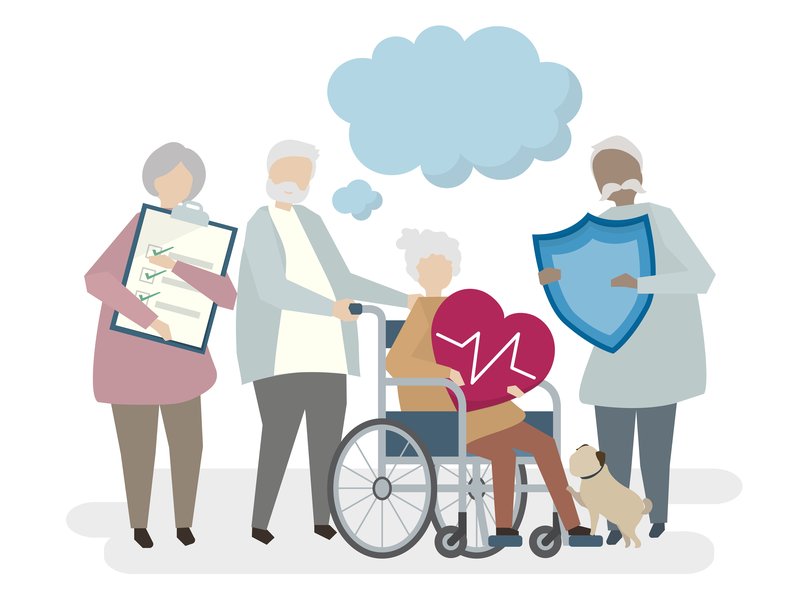Providing Supportive Dementia Care

One of our favorite sayings is that ‘Rome wasn’t built in a day’. Although ultimately, organizations strive to achieve the goal of top-down, bottom-up, complete reform to all aspects of an organization through processes, policies and activities and functions. However, complete and total reform is seeded through taking on small tasks and functions, piece by piece, to build and develop culture. By choosing low hanging fruit to build momentum, we are engaging staff in identifying their contributions to culture development, and give them the opportunity to start to reframe their own thinking around dementia care.
Providing supportive dementia care to those who are within our organizations is steeped in support, honouring life history and eliciting choice, among others. Ultimately, turning organizational cultures toward person centeredness and supporting our clients has many benefits; from staff and client wellness, quality provision of care, and improved satisfaction from both clients, staff and community partners.
For organizations who are interested in beginning to ‘build Rome’, there are a number of ways leadership can be supportive. Providing education and information, recognition of effort and support of person centered care, and providing unwavering support from leadership to staff for those providing person centered dementia care are key to engaging staff in this process. When organizations support their staff in this manner, we have seen the development of staff as true change agents in creating a person centred environment for those who are living with dementia that we care for. In actuality, for staff to begin implementing person centered dementia care, it often results in a number of small, seemingly insignificant shifts in approach, and a more thorough understanding and perception of clients, to truly begin the upswing to providing person centered dementia care.
Here are a few suggestions to begin your shift toward true person centered dementia care

When providing hygiene care, doing baths and supporting someone to use the washroom, speaking directly to them, mitigating any background or other noise is key to help the person living with dementia understand what is going on and how they can be a partner in their care. Breaking down tasks into simple, step by step instructions, can help the person living with dementia better understand what their role is in going to the bathroom, taking a shower, or getting dressed for the day, because we all want to be aware of what we’re doing and how we’re doing it.

In healthcare, we love a good dining hall. In long term care, our favorite way to dine is with 30 people plus staff all joined in ‘harmony’ in the dining room. Sometimes, however, some people don’t enjoy that atmosphere, and some, like myself, often eat snacks and other meals, standing up, or on the go. Encouraging an environment that supports clients in choosing how they consume their meal, can significantly help with food intake and positive mood and engagement at meal times. Keeping in mind that not everyone feels comfortable in groups, and some feel as though they have other, better things to do, meeting the clients where they’re at by putting a sandwich on their walker while they head back to their room, or encouraging them to sit in a quieter area away from the hustle and bustle of the dining room, can help support your clients in a meaningful and person centered way.

When we hear the term meaningful engagement or meaningful activities we often think that it is the Activity or Therapeutic Recreation team who are responsible for providing meaningful activities for clients. If your organization is lucky enough to have an Activity or Recreation team, they are absolutely an important resource for ways to engage your clients in a meaningful way, and are often keepers of a great deal of knowledge on preference, like what someone likes in their tea or coffee, and life history. A key to providing quality person centred dementia care, however, is engaging your clients meaningfully while providing personal care, assisting them with their meal, or engaging with them in a one on one experience. Providing meaningful engagement can be as simple as talking to the gentleman who you’re getting washed up for the day about his favorite baseball team, and what the score of the ball game was last night. Engaging your clients in a meaningful way often provides them comfort and the feeling that you are familiar to them. It also encourages them to be a meaningful contribution to their community by providing them the chance to share and discuss something they know and enjoy talking about.
Another saying we often share, is if you’ve met one person with dementia, you’ve met one person with dementia. Maintaining autonomy is a key aspect of providing person centred dementia care, and small changes and adaptations can provide your clients with greater autonomy and a feeling as though they are partners in their own care. Providing your clients with choices can be as simple as letting them choose whether they want salt and pepper on their meal (for tips on how to communicate this - check out our 5 tips for person centred care post where we talk about ways to effectively communicate - here) and if they would like juice with their meal today. Let them choose when they’re ready to get up, and give them choices in their clothing each day.
Starting with small changes and adjustments to approaches can begin the process into person centered dementia care reform. Through easy-to-implement, bite sized adjustments to approaches, you and your staff can begin your journey toward person centered dementia care, and if you need help and support, contact us!
These suggestions have been derived from our Dementia: Understanding the Journey course, a 27 hour class taught virtually via Zoom online platform. Dementia: Understanding the Journey is an effective education curriculum for staff and leadership with any background and working within any aspect of a healthcare environment. If you’re interested in providing your teams the fundamentals of person centered dementia care, find out more about the course here.
